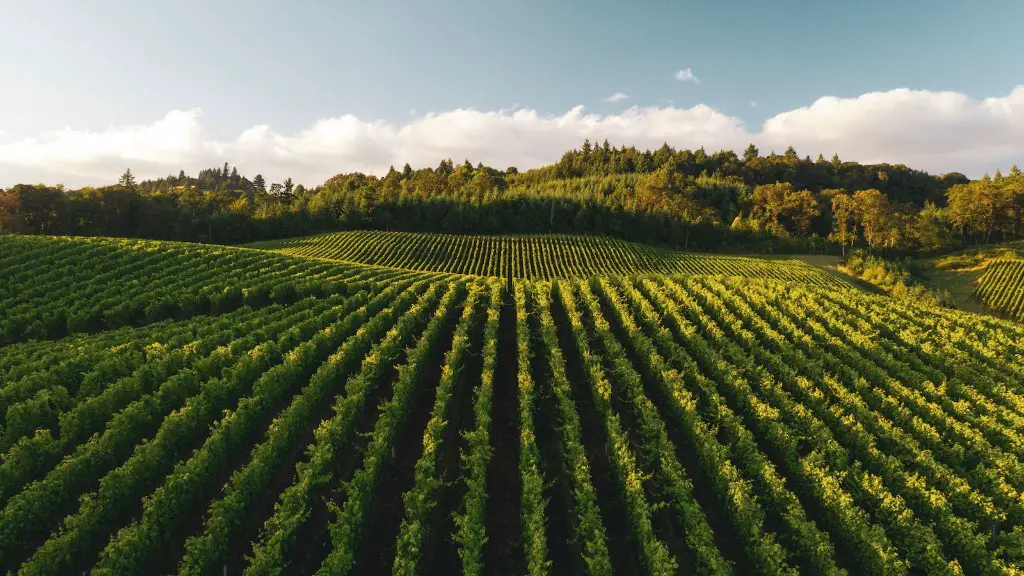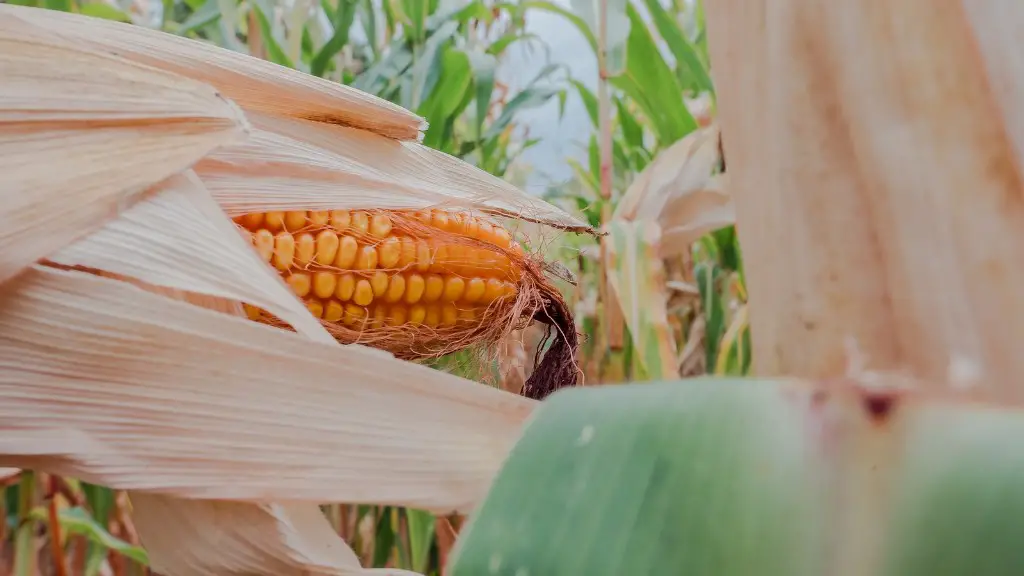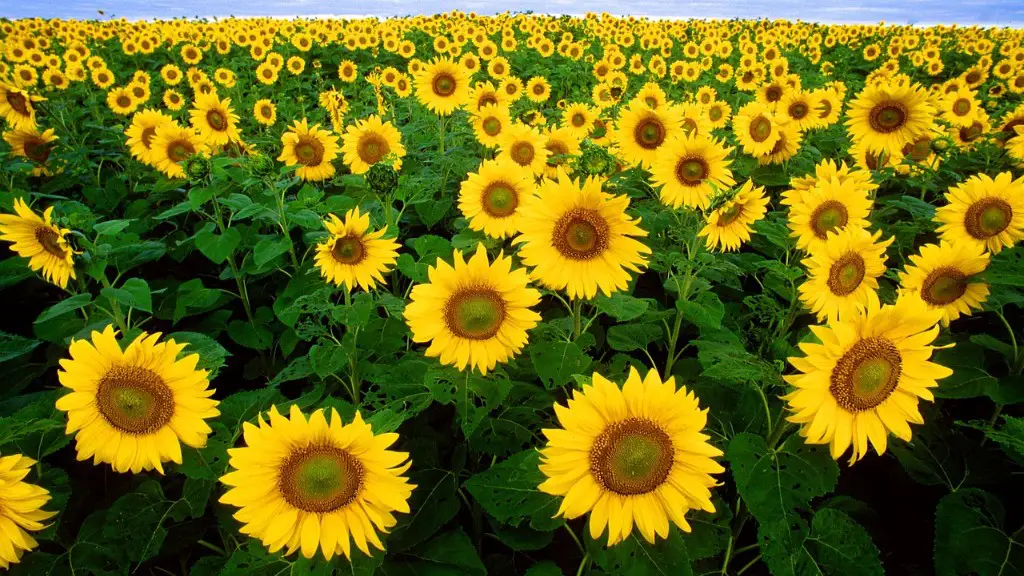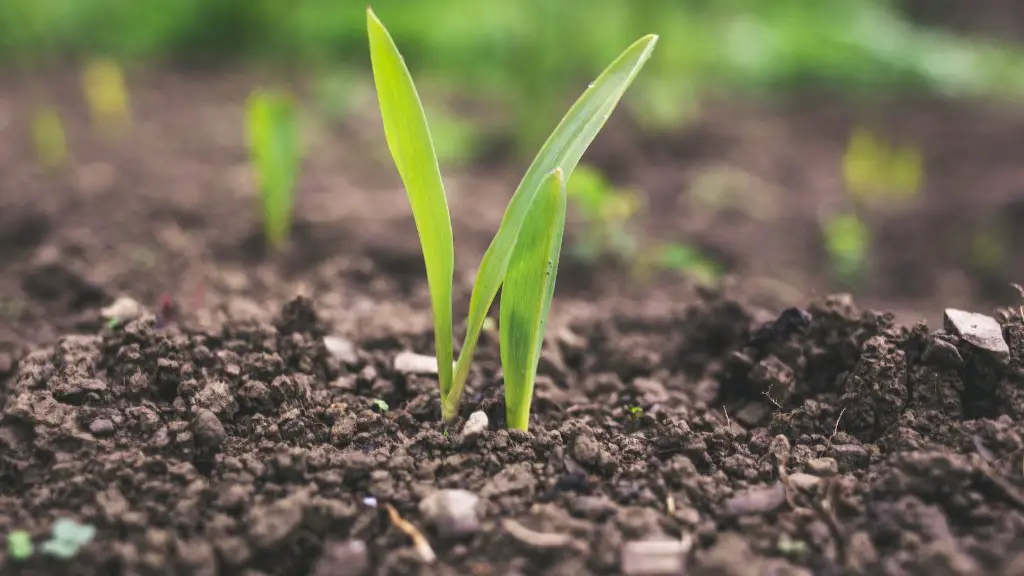The Disadvantages of Agriculture
Agriculture, while seen as an increasingly essential part of modern life, carries some potentially serious disadvantages. industrial-scale farming and mass production of food and materials has created a monoculture system that is wreaking havoc on biodiversity, soil, and water resources. Chemicals, such as fertilizers, pesticides, and herbicides, used in the production process can be dangerous to the environment and to human health. Advancement in technology has enabled the mechanization of farm labor leading to less jobs and fewer small farms.
The first major disadvantage of industrial-scale agriculture is the destruction of biodiversity as a result of monocultures. When only one type of crop is grown, the soil becomes depleted in nutrients and the crop losses increase. Monocultures have also enabled the spread of diseases. Without biodiversity, animals lose food and shelter, which can further deplete the ecosystem.
The reliance on chemical fertilizers and pesticides in modern agricultural production to speed up growth and enhance yields is another source of environmental degradation. Fertilizers, which are natural or artificial substances that provide essential nutrients for plant growth, can lead to soil contamination, water pollution, and lower crop yields. Pesticides, on the other hand, can be toxic to beneficial organisms, can kill aquatic life and are harmful to human health.
The rate at which natural resources are being depleted to feed the industrial-scale farms is also creating environmental problems. Overuse of land and water resources can result in depletion of soil fertility, water scarcity, and depletion of other resources like forests. Agroforestry, or the integrated production of trees and crops, is one way to try and reduce the significant negative impacts of industrial-scale agriculture on soil and water resources.
Another disadvantage of large-scale agriculture is the impact it has on rural areas. Industrial-scale farms often require the use of costly machinery and technology to produce the product. This makes them expensive to set up and maintain, resulting in fewer jobs in rural areas. Additionally, with mechanization, there is less demand for manual labor, meaning less job opportunities in the localities in which they operate.
The last major disadvantage of industrial-scale agriculture is the health risks. Herbicides, pesticides, and fertilizers are used indiscriminately and may cause a host of health problems for humans, animals, and plants alike. They can lead to genetic modifications, resistance to diseases, and disruption of ecosystems.
Monocultures Contribute to Biodiversity Loss
Monocultures, or the cultivation of a single crop at a large scale, is a major problem for ecological conservation. These large expanses of land are so-called “mini desserts” that are uninhabited by organisms or animals. The lack of biodiversity of the land has led to soil erosion, water shortages, and impacts on local fauna, leading to a massive extinction of species. Monocultures have also led to the dominance of weeds that are now resistant to certain pesticides, resulting in competition with crops and increasing their costs.
Additionally, monocultures leave little to no space for ecological diversification, leading to a decrease in soil fertility, and lack of refuge for animals. They also require the constant use of fertilizers, herbicides, and pesticides, which are eventually released into the environment and can cause a variety of problems for fauna and flora.
Furthermore, monoculture fields restrict the entry of pollinators, like honeybees and birds, which help to increase yields of crops. These pollinators are beneficial for food production and environmental conservation but their increased absence can lead to crop losses and further degradation of the land.
Finally, monocultures are highly vulnerable to the changing weather and climate, especially due to the lack of genetic diversity. This reduces the ability of the crop to resist against climate-induced disasters like floods and droughts, leading to crop failures and economic losses.
The Use of Fertilizers, Pesticides and Herbicides
The use of fertilizers, pesticides, and herbicides is widespread in industrial-scale agricultural production. While these chemicals provide essential nutrients for crop growth and protect plants against disease, pest, and weeds, there are also numerous negative implications for the environment and human health that accompany their use.
Fertilizers can be either natural, coming from organic sources like manure or compost, or artificial, coming from synthetically produced chemicals. While natural fertilizers are better for the environment, their effectiveness dissipates quickly, leaving behind nitrogen and, in the long term, can cause soil acidification. Artificial fertilizers, while they boast a longer lasting effect, can be hazardous to human health and contribute to the development of resistant weeds and pests.
Pesticides, while effective in controlling weed and pest, can also have detrimental effects on human health and the environment. They can lead to reduced fertility, endocrine disruption, and neurological problems, especially among young children. Additionally, their run-off can seep into bodies of water and contaminate drinking water and fish, leading to a variety of health complications.
The use of herbicides is also harmful to the environment, particularly if used indiscriminately. They can lead to disruption of the natural habitat, as well as the death of beneficial insects. Moreover, soil salinization and nutrient depletion can occur as a result of herbicide use, leading to an increased need for more chemical inputs.
Mechanization of Farm Labor
Advances in technology have allowed for the mechanization of farm labor, resulting in many positives such as increased yields, less dependence on manual labor, and increased efficiency. However, with such advancement also comes a vast array of potentially damaging effects.
For instance, the introduction of machines on farms has caused a decrease in the labor force. This has led to a decrease in wages and job opportunities for many rural people, as fewer manual jobs are now available. Additionally, with machines often requiring expensive fuel, upkeep, and repairs, the costs to run them is quite high, making them financially unviable for small farmers.
The mechanization of agricultural labor has also reduced the need for skilled labor. Indeed, machines can often do the jobs of two people more quickly and with more accuracy. The constant need for rapid technological advancement to keep up with global competition means farming is an increasingly difficult sector to survive in, especially for those without the capital to invest.
Additionally, with large machines often needed to carry out important farming tasks, farms have grown in size and require larger highways, access roads and other infrastructure. This can lead to deforestation as land is cleared for buildings and roads. Furthermore, machines have been found to have a damaging effect on soil quality, as their weight compacts soils, leading to reduced water infiltration, soil tie-up, and loss of organic matter.
Depletion of Natural Resources
Large-scale farming requires large amounts of natural resources, such as land and water, and the result is often an overuse and depletion of these resources. Indeed, the unsustainable use of natural resources can lead to water shortages, soil erosion, and deforestation.
In terms of land use, industrial-scale farms often require vast expanses of land in order to produce their crops. This is particularly true for livestock, as vegetation and other resources are often needed in support of the animals. This has led to large-scale deforestation, which reduces the habitats of animals, causing them to become extinct or endangered.
In terms of water use, industrial-scale farming relies heavily on irrigation for crop production. This can be harmful to water resources, as too much withdrawal of water can cause rivers, streams and lakes to dry up. This is especially true in areas where the water source is not being replenished. Additionally, water runoff from farms may contain substances, like fertilizer, pesticides, and herbicides, polluting water bodies.
Finally, the use of natural resources has led to soil depletion, as fertilizer and pesticides can lead to loss of soil fertility, reducing crop yields. Additionally, soil compaction, caused by machinery and animals, can also reduce soil fertility and lead to reduced water infiltration.
Impact on Rural Areas
In addition to the environmental impacts, industrial-scale agriculture can have a detrimental impact on rural areas. Large-scale farms require substantial amounts of capital to set up and maintain and often this is only achievable by larger businesses. As a result, fewer small farms and local businesses are able to survive in the market.
Furthermore, with the use of mechanization and technology, there is an increasing need for fewer manual jobs. This has led to a decrease in available labor, causing wages to go down. This makes it difficult for farmers to survive, as the costs to stay in business may be too great to handle.
The decrease in rural labor has also led to a decrease in rural populations, as fewer job opportunities are available to those in the area. This can have a knock-on effect as fewer people living in rural areas implies fewer people frequenting rural businesses, leading to closure.
The people that are still able to remain in rural areas are often faced with an even bigger struggle. Small farms may be unable to compete with the larger industrial-scale farms and the resulting lack of economic resources can strain the community’s access to social services and other essential resources.





